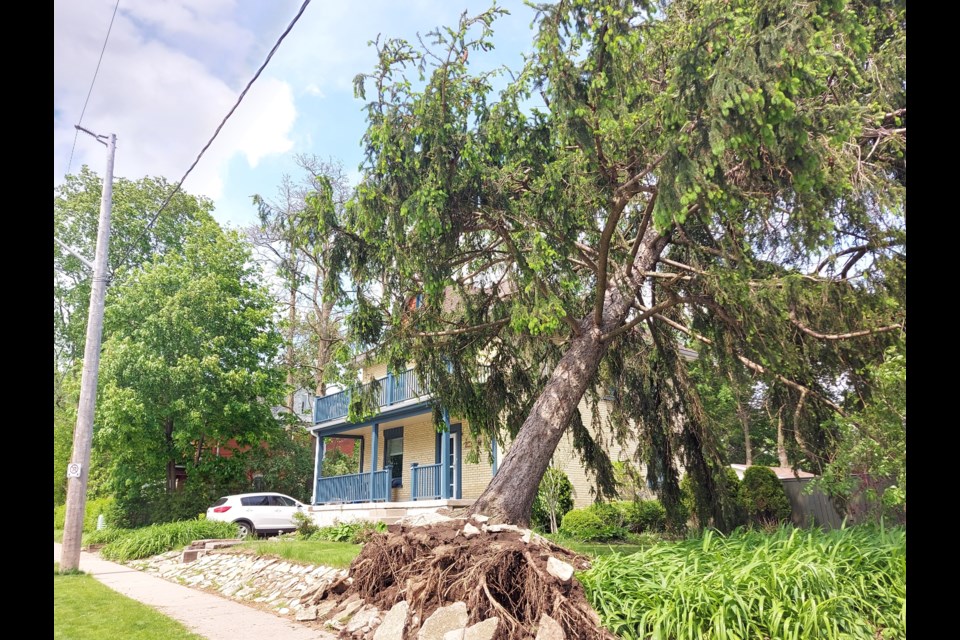The city expects it could take up until mid-June to finish clearing out all the tree debris from last Saturday’s storm.
Trees were uprooted, knocked over and branches were scattered throughout Cambridge by the 133 km/h recorded winds tracked by Environment Canada.
GrandBridge Energy was extremely busy over the long weekend trying to help in the storm’s aftermath.
Their crews restored power to over 40, 000 customers in the area. In Brantford they restored power to 5, 000 customers, in Cambridge and North Dumfires they restored power to 36,500 customers.
In an email their communications team confirmed they have restored power to all their customers as of Thursday, May 26.
“Although the storm did not last long, it did major damage in a short amount of time. The winds were so strong that they snapped some of our wood poles in half.”
“The longer restore times in some areas of Cambridge were due to extensive damage to poles on Franklin Boulevard. Poles containing several circuits broke off completely.”
The storm was province-wide, starting from London and ending in Quebec, said senior climatologist for Environment Canada David Phillips.
Over a million people between Ontario and Quebec were without power.
The storm knocked down many trees and hydro poles with ease as the soil is softer in May and the leafs act like sails.
“This storm really tracked through the heart of Ontario, the urban areas,” said Phillips.
Guelph had recorded wind speeds of 83 km/h and Elora had speeds recorded at 99 km/h.
“At 11 o’clock it was in Cambridge and Kitchener, 12 o’clock it was in Toronto, one o’clock it was in Oshawa heading towards Peterborough, two o’clock it was Kingston, by three o’clock it was in Ottawa. You couldn’t drive that fast on the 401 to beat the storm.”
Uxbridge had an emergency alert when a tornado touched down during the storm.
Environment Canada isn’t predicting any storms like that again on the horizon for the summer but it is possible, noted Phillips.
He doesn’t think it should be looked at as climate change, as Ontario often gets bad storms, there just usually in winter when the ground is frozen and trees can’t be moved as easily.
“Early that day the sun was out, it was a nice summer day and people were seduced into going out.”
At least 10 people around Ontario died from the major storm last Saturday.
Phillips mentioned Environment Canada sent out a warning half an hour before the storm hit to people in the Waterloo area and Guelph, which is typical for weather alerts. He is sympathetic hearing that many people did not receive the notifications.
“I think the take home message for this is that alerts and warnings that we’ve become overly dependent on from the government is not the only way to look at weather.”
If you see dark clouds or hear lightning, immediately take shelter, reminded Phillips.
“Nature always warns you before it hits you.”



